When I listen to Master Sheng Yens presentation of Chan Buddhist teachings, my immediate and very profound feeling is that I am listening to words of wisdom from someone who is very experienced and a great practitioner. His Holiness, the Dalai Lama ABOUT THE BOOK For the masters of the Chan tradition, poetry was a form of creative expression, but even more than that, it was a primary vehicle for teaching. Here a modern master presents ten teaching poems from the ancient masters, with illuminating commentary. These poems flow directly from the minds of the enlightened Chan masters, Master Sheng Yen says. We get a glimpse into their experience at the time of, and after, their enlightenment. It is my hope that this collection of poems will give those who are interested in the practice a new way of looking at Chan.
CHAN MASTER SHENG YEN (19302009) was a widely respected Taiwanese Chan (Chinese Zen) master who taught extensively in the West during the last thirty-one years of his life, with twenty-one centers throughout North America, as well as dozens of others throughout the world. He co-led retreats with the Dalai Lama, and he is the author of numerous books in Chinese and English, including Song of Mind, The Method of No-Method, and his autobiography, Footprints in the Snow. Sign up to learn more about our books and receive special offers from Shambhala Publications.  Or visit us online to sign up at shambhala.com/eshambhala. The Poetry of Enlightenment Poems byAncient Chan MastersChan Master Sheng Yen
Or visit us online to sign up at shambhala.com/eshambhala. The Poetry of Enlightenment Poems byAncient Chan MastersChan Master Sheng Yen Shambhala Boston & London 2013 Calligraphy on following page by Master Sheng-yen: Through the tangles of vines and tendrils, and the knots of cords and ropes.....
Shambhala Boston & London 2013 Calligraphy on following page by Master Sheng-yen: Through the tangles of vines and tendrils, and the knots of cords and ropes.....  Shambhala Publications, Inc.
Shambhala Publications, Inc.  Shambhala Publications, Inc.
Shambhala Publications, Inc.
Horticultural Hall 300 Massachusetts Avenue Boston, Massachusetts 02115 www.shambhala.com 1987 by Dharma Drum Publications Cover design by Jim Zaccaria Cover art: Chad Ehlers / Stone / Getty Images All rights reserved. No part of this book may be reproduced in any form or by any means, electronic or mechanical, including photocopying, recording, or by any information storage and retrieval system, without permission in writing from the publisher. Associate Editor: Karen Zinn; Assistant Editors: Earnest Heau, Alan Rubinstein; Translators: Richard Halsted, Paul Kennedy, Peigwang Li, Wei K. Shiue, Paul Truong, Karen Zinn; Transcribers: Nancy Patchen, Karen Zinn; Calligraphy: Chan Master Sheng Yen, Nora Ling-yun Shih Library of Congress Cataloging-in-Publication Data The poetry of enlightenment: poems by ancient Chan Masters / [edited by] Chan Master Sheng Yen. p. cm.
Originally published: New York, N.Y.: Dharma Drum Publications, 1987. eISBN 978-0-8348-2659-5 ISBN 978-1-59030-399-3 (alk. paper) 1. Zen poetry, ChineseTranslations into English. I. Shengyan, 1930 II.
Title: Poems by ancient Chan Masters. BQ9264.4.C62P64 2006 294.34432dc22 2006045044 CONTENTSby Shih Wang Mingby Master Fuby Seng Tsanby Niu Tou Fa Jungby Yung Chia Hsuan Chuehby Shih Tou Hsi Chienby Tung Shan Liang Chiehby Hung Chih Cheng Chuehby Han Shan Te Chingby Han Shan Te Ching Some years ago I edited a book in Chinese entitled Chan Men Hsiu Cheng Chih Yao, or A Guide to the Experience and Practice of Chan, a collection of essays and poems by Chan masters. The authors ranged from Bodhidharma, the Indian monk who arrived in China in 520 or 527 A.D., to Master Hsu Yun (18401959). Of the twenty-four works in the collection, thirteen are poems. I have selected eight of these for the present volume plus two other poems, one by Han Shan Te Ching (On Clear Mind), and one by Hung Chih Cheng Chueh (Silent Illumination). Three of our ten poems can be found in the Wan Tzu Hsu Tsang Ching (Manji-zokuzokyo): Song of the Precious Mirror Samadhi, On Clear Mind and Contemplating Mind. Silent Illumination is found in the Ta Cheng Ta Tsang Ching (Taisho-daizokyo). The rest are recorded in the Ching Te Chuan Teng Lu (Record of the Transmission of the Lamp). I have used these same ten poems over the years as lecture topics for Chan retreats and evening classes at the Chan Meditation Center in New York City.
Before each lecture series one or more of my bilingual students would render each poem into English as I interpreted the meaning, line by line, in modern Chinese. The poems were chosen for their concise and simple language, but also for their deep and rich meanings. They were written by highly accomplished Chan masters only after they had reached thorough enlightenment. These masters wrote poems to express their experiences of Chan, to provide future generations with the means of realizing Chan, and to describe the situation of the mind after enlightenment. But since Chan is basically ineffable, the authors relied heavily on allusions, similes and metaphors which can be interpreted in less obscure language only by someone who has already practiced Chan very deeply. I believe that in the English translation, the poems become more accessible; but even so, only a portion of the meanings may be easy to understand.
The density of the ideas in the poems ideally requires an expanded commentary. Two of the poemsHan Shans Contemplating Mind and Hung Chihs Silent Illuminationhave already been published along with commentaries in my book Getting the Buddha Mind. Future books containing full commentaries on most of the other poems are planned. My purpose in publishing this collection is to provide the reader with insight into the minds of the Chan masterstheir practices and their post-enlightenment experiences. Moreover, the poets were not only highly accomplished practitioners, they were also well-versed in literature, history and Buddhist scholarship. In these poems we can discern references to Chinese philosophical, religious and literary history, as well as to the roots and theories of Indian Buddhism. In Chinese the poems vary in style.
Some strictly follow the rules of Chinese poetry and others are written in the form of a song. Still others resemble the gathas (poems) of Sanskrit verse, although in Chinese the standard meter and rhyme of Sanskrit are not retained. Thus these poems are also interesting from the point of view of literary analysis, though it is not my purpose to elaborate on that aspect here. To my knowledge there are no anthologies of Chan poetry in Chinese, Japanese or English which describe in detail the methods of practice and the experiences of Chan masters. Furthermore, there are few prose sources in English dealing with the same topics. On the other hand, there are numerous books in English that relate the episodes of the kung-ans (koans).
The prevailing view that comes from reading these stories is that the practice of Chan is methodless, and since there is no way to describe the experience of Chan, it is suggested that we just go ahead and practice by studying the kung-ans. The purpose of these poems is different in that they specifically show you how to practice, what attitudes to cultivate and what pitfalls to beware of. Finally, they attempt to describe the ineffable experience of Chan itself. These poems flow directly from the minds of the enlightened Chan masters; we get a glimpse into their experience at the time of, and after their enlightenment. In contrast, in reading a
Next page

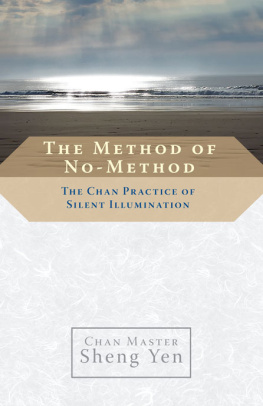
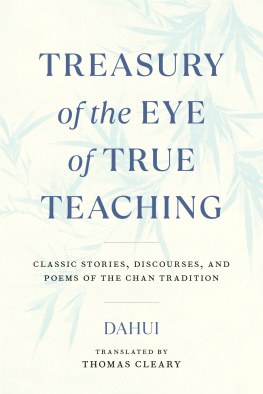
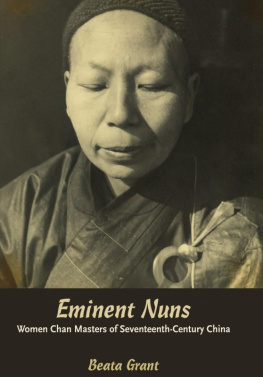
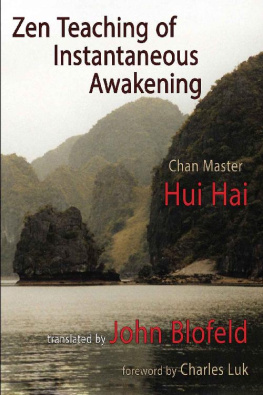

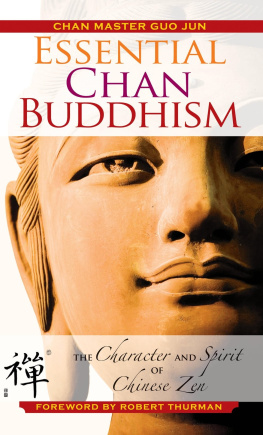
 Or visit us online to sign up at shambhala.com/eshambhala. The Poetry of Enlightenment Poems byAncient Chan MastersChan Master Sheng Yen
Or visit us online to sign up at shambhala.com/eshambhala. The Poetry of Enlightenment Poems byAncient Chan MastersChan Master Sheng Yen Shambhala Boston & London 2013 Calligraphy on following page by Master Sheng-yen: Through the tangles of vines and tendrils, and the knots of cords and ropes.....
Shambhala Boston & London 2013 Calligraphy on following page by Master Sheng-yen: Through the tangles of vines and tendrils, and the knots of cords and ropes.....  Shambhala Publications, Inc.
Shambhala Publications, Inc.